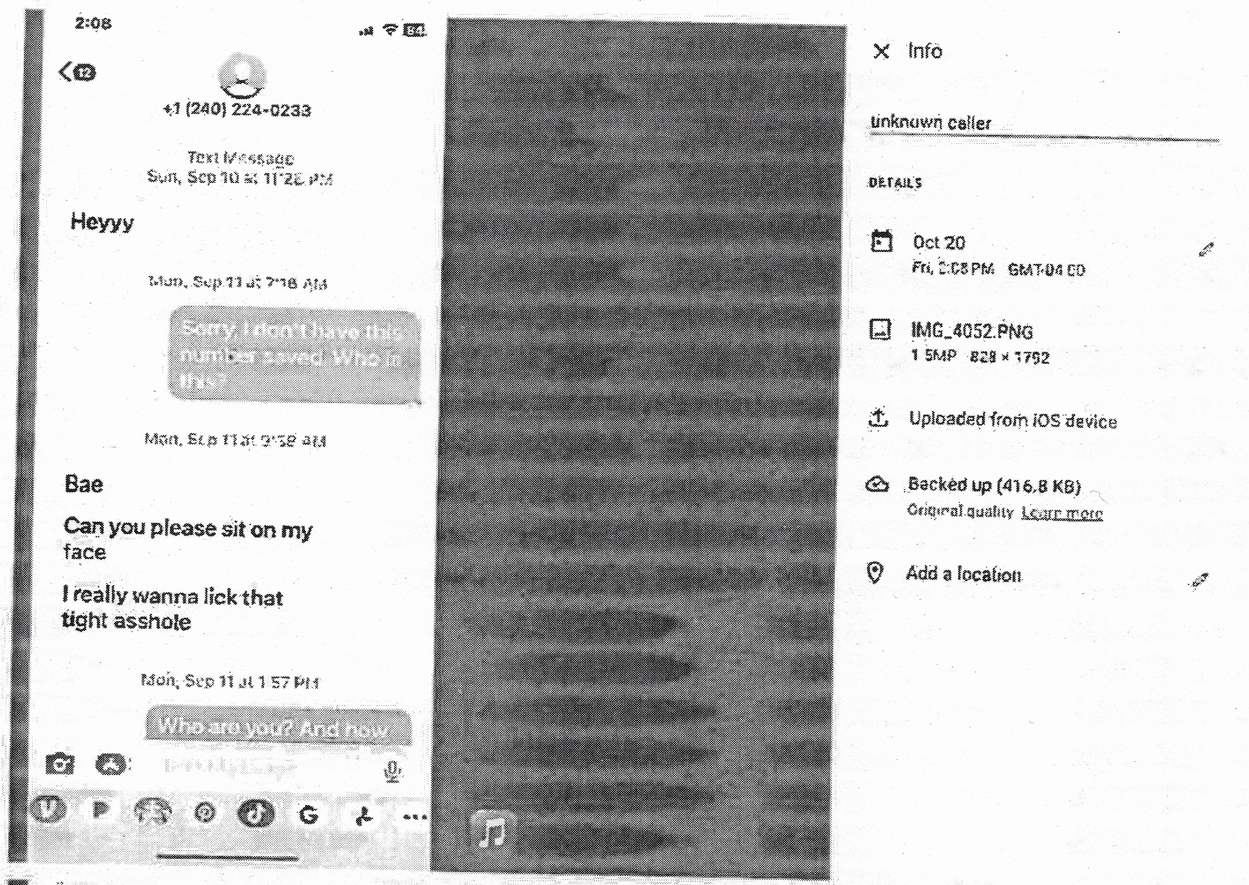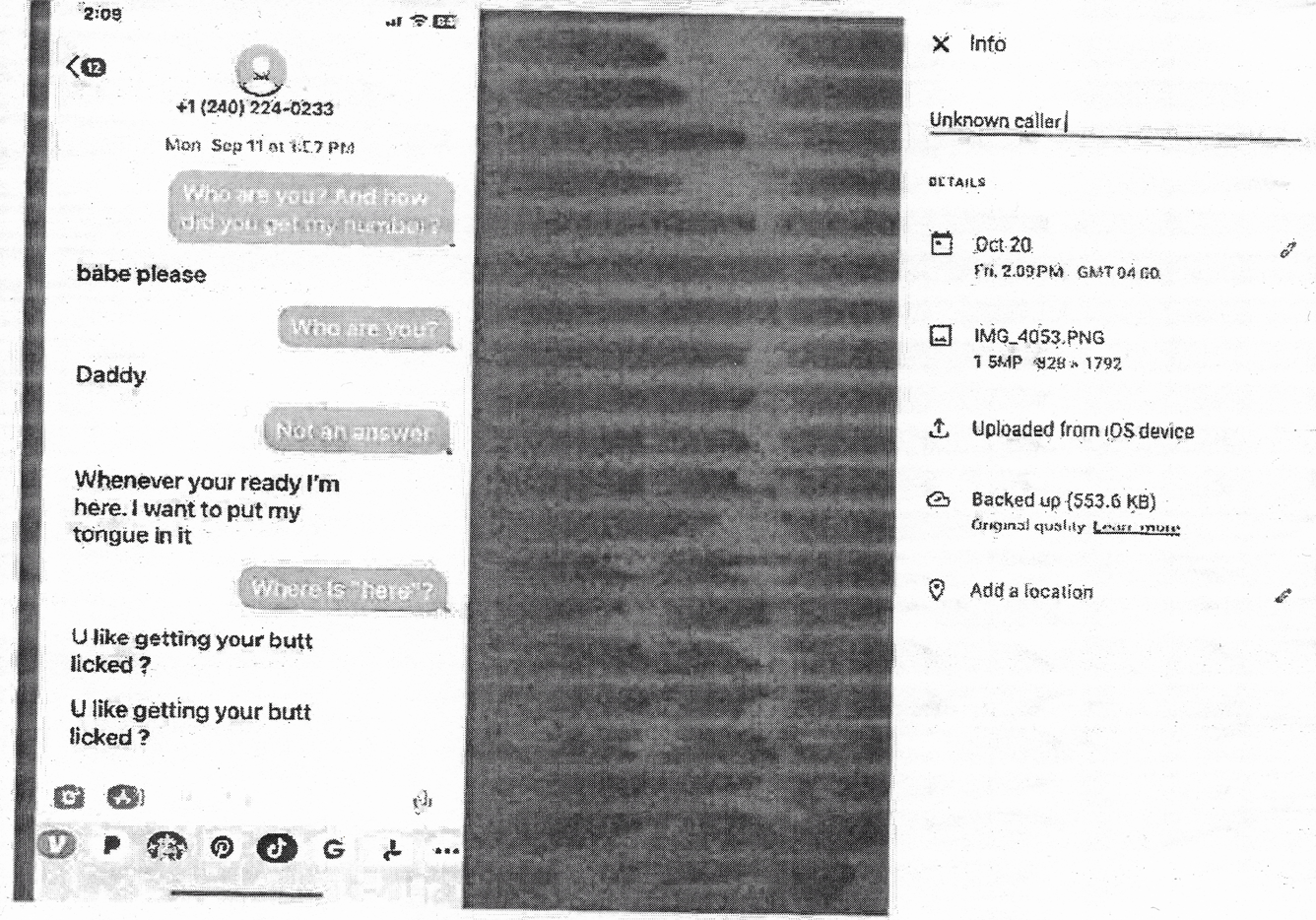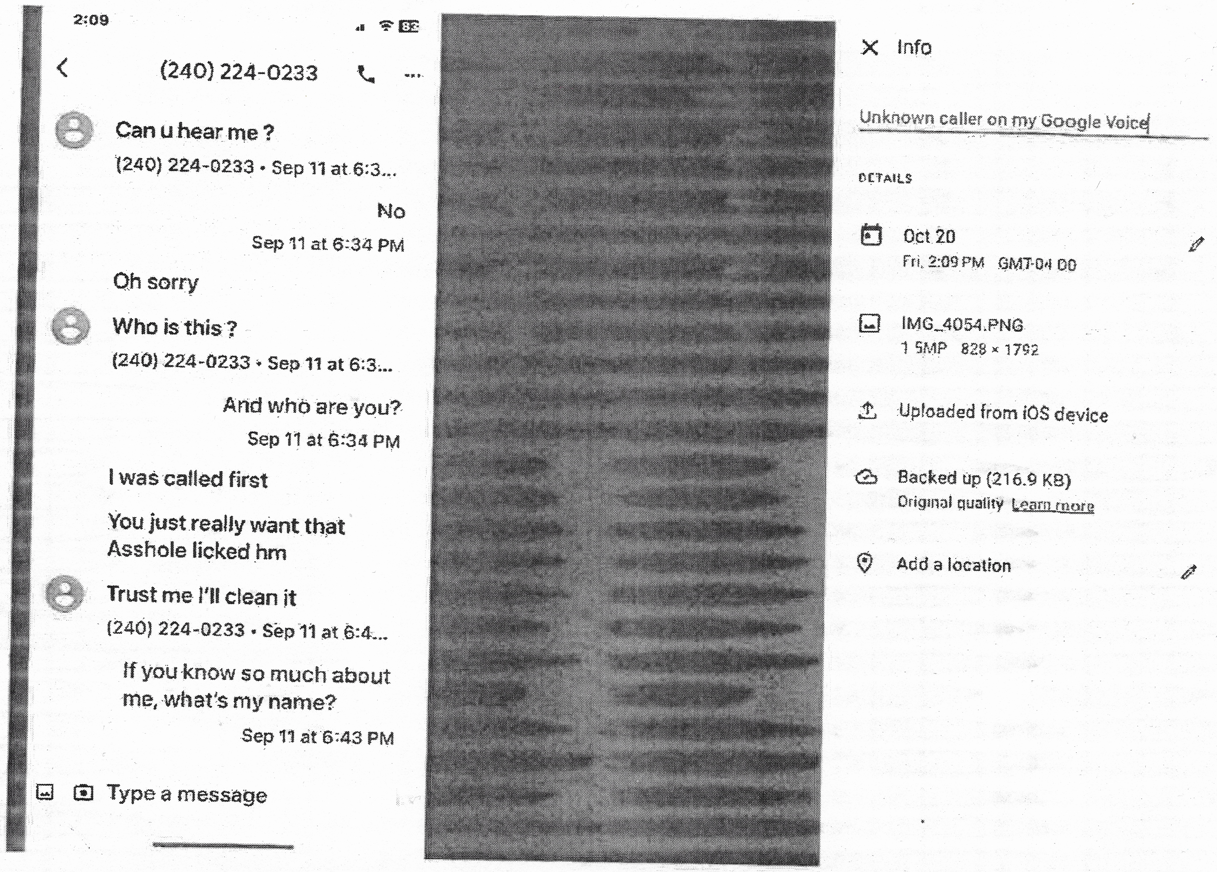By Adam Pagnucco.
Last October, we broke the news that an MCPS teacher was suing MCPS and former Principal Joel Beidleman for sexual discrimination. She filed as Jane Doe because she “has been, and is still being, threatened and harassed as a result of the allegations cited herein causing mental injury.” In recent court filings, she has alleged that the threats and harassment continue. And despite that, Beidleman has asked the court to require her to reveal her true identity or dismiss her case.
I posted the amended complaint in my original post. Doe not only alleged horrific conduct on the part of Beidleman himself – she also alleged that MCPS engaged in a “cover up” of Beidleman’s conduct. Since she filed suit, the county’s inspector general (IG) found that Beidleman did engage in misconduct; the IG revealed that MCPS was warned four times about deficiencies in its complaint handling only to do nothing; and MCPS released a less redacted version of the Jackson Lewis report. Those documents may affect the litigation strategies of the plaintiff and defendants.
MCPS filed its answer to Doe’s complaint on December 4. MCPS claimed that Doe “fails to state a claim upon which relief may be granted” and denied the allegations of fact and liability asserted. Furthermore, MCPS denied all allegations of agency, claimed that the plaintiff failed to exhaust her administrative remedies, did not sustain the damages she alleged and offered other affirmative defenses. MCPS asserted a Faragher/Burlington defense, which relies on two U.S. Supreme Court decisions that limit employer liability for sexual harassment under certain circumstances. None of these defenses are unusual in sexual discrimination cases.
Beidleman, who has his own attorneys, filed a motion to dismiss on December 20. He cited two reasons for doing so. First, he claims that MCPS, not Beidleman, was Doe’s employer at the time of the alleged discrimination. He claims that the county’s anti-discrimination law covers employers but not agents of employers, so he is not liable for any misconduct claimed by the plaintiff. Let’s note that the state’s anti-discrimination law explicitly covers agents of employers and the plaintiff is suing under state as well as county law.
Beidleman’s second reason for dismissal is more interesting. His motion states:
The plaintiff cannot initiate this action under the “Jane Doe” pseudonym without seeking and securing leave from this Court to do so. This Court has not been provided the identity of the plaintiff, even in her Information Report or another document that could have been filed under seal. Before filing this Motion, undersigned counsel asked plaintiff’s counsel to amend the complaint and provide her name or provide the basis for proceeding under “Doe” without the Court’s permission. The plaintiff refused. This case must be dismissed, because this action failed to be brought in the name of the real party of interest.
Beidleman cited Maryland Rules 2-201 and 1-301 to argue that state rules “do not expressly allow a plaintiff to proceed anonymously.” He also cites state and federal case law to argue that anonymous litigation should be rare. He then argues that “at the very least, the plaintiff is obligated to seek leave from this Court to proceed under the ‘Jane Doe’ pseudonym, and her refusal to do so requires dismissal.”
Doe responded to Beidleman on January 4. After discussing the parameters of her case, she writes:
Defendant Beidleman seeks to dismiss this action because Plaintiff identified herself as a “Jane Doe.” In his Motion, Defendant states, without citing a single source, that a party cannot initiate an action under a pseudonym “without seeking and securing leave from this Court to do so.” (Def.’s Mot. P. 2.) Thereafter, Defendant cites certain relevant cases but disingenuously cherry-picks quotes and fails to provide the relevant criteria for allowing anonymity. Finally, rather than analyze local (with the Fourth Circuit) cases similar to the present matter, Defendant cites an academic publication contrary to precedent. Beidleman’s desire in advancing this argument is transparent – to force the Plaintiff to be publicly identified so that she will endure further mental anguish in hopes of leveraging a favorable outcome.
Doe then argues case law on this point and disputes Beidleman’s assertion that county law does not apply to agents of employers. The court will eventually decide these issues. Of particular note is that Doe alleges that the harassment directed against her continues. She writes:
Finally, Plaintiff has been, and continues to be, threatened and harassed as a result of this action. In and around the time Plaintiff filed her charge of discrimination with the EEOC, Plaintiff received anonymous text messages of a vulgar sexual nature. (Anonymous texts, attached hereto as Ex. A.) Thereafter, an individual wrote numerous anonymous messages on dcurbanmom.com (a local on-line community board) threatening plaintiff and identifying her by name. Among other things, the anonymous poster stated: (a) “[Plaintiff] deserves all the back lash she gets. You reap what you sow. Buckle up.” (b) “These women are nuts.” (c) “I hope the accusers are ready…” Additionally, these messages identified Plaintiff by name and made numerous scandalous statements about her. (Anonymous posts, attached hereto as Ex. B.) The Plaintiff intends to question Dr. Beidleman at his February 1, 2023 deposition about his knowledge of these communications and posts.
A note: the actual text of Doe’s response refers to February 1, 2023. Perhaps she meant February 1, 2024.
The Plaintiff attaches examples of harassing texts and DCurbanmom posts as exhibits. I will not reprint the material from DCurbanmom because I will not participate in any effort to unmask her. But I am reprinting the anonymous texts she received below. Imagine being Jane Doe and receiving messages like this.



However this case is ultimately resolved, it reflects the breakdown of MCPS’s complaint procedures noted in the inspector general’s report. This case does not belong in court. It should have been resolved internally. It was not and now the taxpayers will likely have to pay a lot of money to deal with it.
This issue must be discussed in this year’s school board elections.
